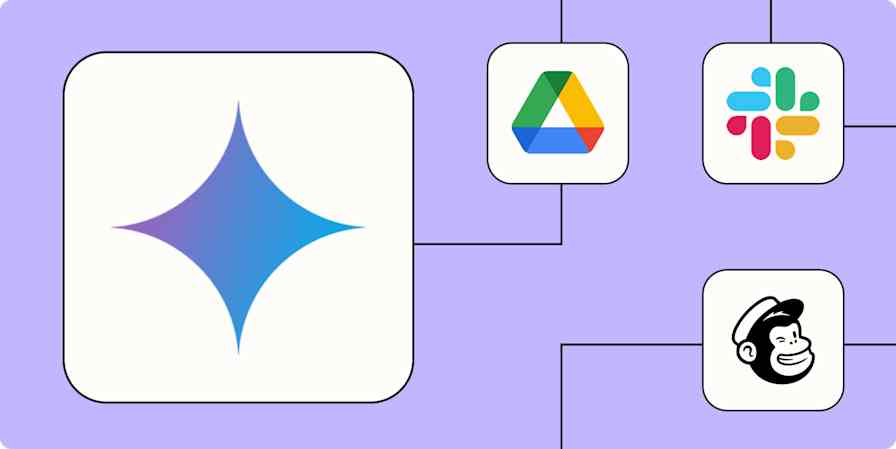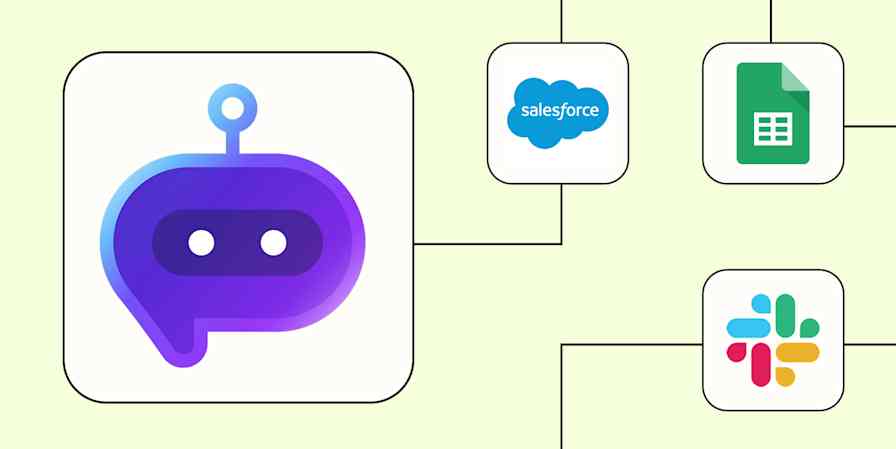Keeping track of all the new AI models getting released at the moment is practically a full-time job. I would know: I've been writing about them for the past few years, and it feels like every time I publish an article, another new model drops. OpenAI is one of the worst offenders (or prolific innovators), and things aren't helped by how confusing all the OpenAI model names are.
So, let's try to simplify things: consider this your complete guide to all of OpenAI's major models. We'll look at what each one is good for, how much they cost, and how to make the most of them in your work.
But first, I have to apologize for the crimes against consistent naming conventions, capitalization, and hyphenation we're all going to have to endure. GPT-4.1 mini, o3-pro, and GPT Image 1 are three of OpenAI's latest models. Hang in there.
Table of contents:
Why are there so many OpenAI models?
OpenAI is one of the most important AI companies. Its ChatGPT chatbot and DALL·E 2 image generator essentially kickstarted the current AI boom. Over the past few years, it's continued to develop large language models, multimodal models, and text-to-image models.
OpenAI is moving fast. As the technology advances, new models have come out, and we've naturally been left with an extensive list—including some legacy models.
Note: Some of the models below are accessible through ChatGPT, but we'll mostly be looking at the models available through OpenAI's API. That means you can also use them to develop your own AI-powered tools and connect them to thousands of other apps using Zapier.
OpenAI models at a glance
Model | Best for | Inputs | Outputs | Context window | Pricing (input / output per M tokens) | Notes |
|---|---|---|---|---|---|---|
GPT-4.1 | Complex tasks without advanced reasoning | Text, Images | Text | 1,047,576 tokens | $2 / $8 | Versatile, powerful general model |
GPT-4.1 mini | Balance of power, performance, and affordability | Text, Images | Text | 1,047,576 tokens | $0.40 / $1.60 | Great general purpose starting point |
GPT-4.1 nano | Speed and price optimization | Text, Images | Text | 1,047,576 tokens | $0.10 / $1.40 | Fastest and cheapest GPT-4.1 model |
GPT-4o | Multimodal tasks (text, images, audio) | Text, Audio, Images | Text, Audio | 128,000 tokens | Text: $2.50 / $10; Audio: $40 / $80 | Only model with audio in/out in API |
GPT-4o mini | Multimodal on a budget | Text, Audio, Images | Text, Audio | 128,000 tokens | Text: $0.15 / $0.60; Audio: $10 / $20 | Budget-friendly multimodal model |
o3 | Advanced reasoning and logic | Text, Images | Text | 200,000 tokens | $2 / $8 | Best for technical, scientific, coding tasks |
o3-pro | Really advanced reasoning and logic | Text, Images | Text | 200,000 tokens | $20 / $80 | Boundary-pushing research and coding |
o4-mini | Affordable reasoning and logic | Text, Images | Text | 200,000 tokens | $1.10 / $4.40 | High performance at lower cost |
Whisper | Affordable transcription | Audio | Text | N/A | $0.006/minute | Can only transcribe or translate audio |
GPT Image 1 | Image generation | Text, Images | Images | N/A | Text: $5 Image: $10 / $40 | Successor to DALL·E, top-tier image generation |
GPT-4.5 | Human-like text generation | Text, Images | Text | N/A | $20/month (Plus); $200/month (Pro) | Only available through ChatGPT |
Sora | Video generation | Text, Images, Videos | Videos | N/A | $20/month (Plus), $200/month (Pro) | Video generation not available via API |
GPT-4.1
Best OpenAI model for complex tasks that don't require advanced reasoning
GPT-4.1 is OpenAI's flagship multimodal LLM and one of the most powerful non-reasoning AI models available right now.
It's best to consider GPT-4.1 the ultimate Swiss Army knife of OpenAI's models. While there's very little it can't do, there are some situations where another model might be more appropriate. For example, a dedicated reasoning model will perform better on multi-step tasks like code generation, while a smaller cost-optimized model will offer better value for basic text generation.
GPT-4.1 inputs: Text, images
GPT-4.1 outputs: Text
GPT-4.1 context window: 1,047,576 tokens
GPT-4.1 input pricing: $2/M tokens
GPT-4.1 output pricing: $8/M tokens
GPT-4.1 mini
Best OpenAI model for balancing power, performance, and affordability
GPT-4.1 mini is a fast and affordable general-purpose AI model. In benchmarks, it performs almost as well as GPT-4.1 but at ⅕th the price. If you aren't sure which model to use, GPT-4.1 mini is probably the sensible starting point. Unless you know you need the extra power of GPT-4.1 or are concerned about cost optimization, it's a very strong option.
GPT-4.1 mini inputs: Text, images
GPT-4.1 mini outputs: Text
GPT-4.1 mini context window: 1,047,576 tokens
GPT-4.1 mini input pricing: $0.40/M tokens
GPT-4.1 mini output pricing: $1.60/M tokens
GPT-4.1 nano
Best OpenAI model for speed and price
GPT-4.1 nano is the smallest GPT-4.1 model available. As a result, it's the fastest and cheapest model—though it isn't as powerful as GPT-4.1 or GPT-4.1 mini. It's the model to use for simple tasks, or when you need to prioritize speed and cost-effectiveness.
GPT-4.1 nano inputs: Text, images
GPT-4.1 nano outputs: Text
GPT-4.1 nano context window: 1,047,576 tokens
GPT-4.1 nano input pricing: $0.10/M tokens
GPT-4.1 nano output pricing: $1.40/M tokens
GPT-4o
Best OpenAI model for multimodality
While a specially trained version of GPT-4o powers ChatGPT, it's largely been replaced by the newer, more powerful, and more affordable GPT-4.1 model in the API. But GPT-4o (which powers ChatGPT image generation) still has one key API feature that its successor lacks: GPT-4o Audio supports audio inputs and outputs. It can transcribe audio into text or reply with speech.
GPT-4o inputs: Text, audio, images
GPT-4o outputs: Text, audio
GPT-4o context window: 128,000 tokens
GPT-4o input pricing: $2.50/M tokens for text; $40/M tokens for audio
GPT-4o output pricing: $10/M tokens for text; $80/M tokens for audio
GPT-4o mini
Best OpenAI model for multimodality on a budget
Like GPT-4o, GPT-4o mini has been replaced by the more affordable and powerful GPT-4.1 mini in the API—though it still powers ChatGPT for free users. Similarly, GPT-4o mini Audio offers audio inputs and outputs for ¼th the cost of GPT-4o Audio. For developers that need an audio model but are cost constrained, it's the best option.
GPT-4o mini inputs: Text, images, audio
GPT-4o mini outputs: Text, audio
GPT-4o mini context window: 128,000 tokens
GPT-4o mini input pricing: $0.15/M tokens for text; $10/M tokens for audio
GPT-4o mini output pricing: $0.60/M tokens for text; $20/M tokens for audio
o3
Best OpenAI model for advanced reasoning and logic
o3 is OpenAI's most powerful reasoning model, and it's one of the most advanced AI models currently available.
Reasoning models like o3 are best for logical, technical, and scientific tasks. If you need the most powerful model OpenAI has for generating computer code, analyzing text documents and images, or solving complex puzzles, o3 is the one to use. But because reasoning models use additional resources to work through problems, they're more expensive for tasks that don't require advanced reasoning.
OpenAI o3 inputs: Text, images
OpenAI o3 outputs: Text
OpenAI o3 context window: 200,000 tokens
OpenAI o3 input pricing: $2/M tokens
OpenAI o3 output pricing: $8/M tokens
o3-pro
Best OpenAI model for really advanced reasoning and logic
o3-pro is the same underlying model as o3, but it's allowed to reason for more time to provide more reliable responses. While the two models are obviously very similar, OpenAI claims that o3-pro consistently outperforms o3 in head-to-head tests.
o3-pro makes the most sense for researchers and engineers pushing the limits of what AI models can do. If you absolutely need the most accurate reasoning model, it makes sense to choose it over o3. Otherwise, the performance gains may not be worth the price premium.
OpenAI o3-pro inputs: Text, images
OpenAI o3-pro outputs: Text
OpenAI o3-pro context window: 200,000 tokens
OpenAI o3-pro input pricing: $20/M tokens
OpenAI o3-pro output pricing: $80/M tokens
o4-mini
Best OpenAI model for affordable reasoning and logic
o4-mini is OpenAI's most powerful small reasoning model. It was developed from the as-yet-unreleased o4 model, and as a result, it's almost as powerful as o3 at just over 1/10th the price.
o4-mini is the best reasoning model for most situations. If you're truly pushing the limits of what AI can do, o3 can give slightly better results, but in many situations, o4-mini's speed, affordability, and higher usage limits offset the small drop in reasoning ability.
OpenAI o4-mini inputs: Text, images
OpenAI o4-mini outputs: Text
OpenAI o4-mini context window: 200,000 tokens
OpenAI o4-mini input pricing: $1.10/M tokens
OpenAI o4-mini output pricing: $4.40/M tokens
Whisper
Best OpenAI model for affordable audio transcription
Whisper is an older audio transcription and translation model. While GPT-4o is far more powerful, at just $0.006 per minute of audio transcribed or translated, Whisper is a solid budget option for low-stakes audio services.
Whisper inputs: Text, images
Whisper outputs: Text
Whisper input pricing: $0.006/minute
GPT Image 1
Best OpenAI model for generating images
GPT Image 1 is the successor to OpenAI's DALL·E image models, and it's one of the best text-to-image models available.
OpenAI's pricing for image models is quite complicated because images are converted into tokens based on their size and quality. It currently costs $0.011 to generate a 1024 x 1024 low-quality image and $0.167 to generate a 1024 x 1024 high-quality image.
GPT Image 1 inputs: Text, images
GPT Image 1 outputs: Images
GPT Image 1 input pricing: $5/M text tokens; $10/M image tokens
GPT Image 1 output pricing: $40/M image tokens
GPT-4.5
Best OpenAI model for human-like responses
GPT-4.5 is OpenAI's best GPT model, but after July 2025, it'll only be available through ChatGPT. While it outperforms GPT-4o, GPT-4.1 is almost as good and takes significantly less processing power to run—which makes it much more cost-effective. But if you're interested in trying out GPT-4.5, ChatGPT Plus and ChatGPT Pro subscribers can select it from the model selector.
GPT-4.5 inputs: Text, images
GPT-4.5 outputs: Text
GPT-4.5 pricing: Available as part of ChatGPT Plus ($20/month) and ChatGPT Pro ($200/month)
Sora
Best OpenAI model for generating video
Sora is OpenAI's video generation model. It can take a combination of text prompts, still images, and videos, and generate a video based on all that. Sora isn't available as an API.
ChatGPT Plus subscribers can generate watermarked 10-second videos in 720p resolution. ChatGPT Pro subscribers can generate unwatermarked 20-second videos in 1080p resolution.
Sora inputs: Text, images, videos
Sora outputs: Videos
Sora pricing: Available as part of ChatGPT Plus ($20/month) and ChatGPT Pro ($200/month)
Legacy OpenAI models
OpenAI has developed and deprecated dozens of models over the past few years. Here are some of the major models that are no longer supported, actively used, or state-of-the-art:
o1
o1-pro
GPT-4
GPT-3.5 Turbo
GPT-3
DALL·E 3
DALL·E 2
How to choose the right OpenAI model
OpenAI has lots of models, but they each serve a purpose. GPT-4.1 and GPT-4.1 mini are the most flexible—which is why they power ChatGPT. o3, o3-pro, and o4-mini provide advanced reasoning to solve complex problems, while GPT-4.1 nano prioritizes speed and affordability. There's certainly a lot of overlap between the different models' abilities, but in general, one should strike you as the best balance between power and price.
OpenAI keeps releasing new models, changing pricing, and otherwise mixing things up. I'll do my best to keep this list as current and accurate as possible in the meantime.
Automate OpenAI models
All the OpenAI models are the most helpful when they're part of your existing workflow. With Zapier's ChatGPT integration, you can use OpenAI's state-of-the-art models to automate everything from intelligent sales outreach to content generation to customer support. This means doing things like automatically identifying opportunities in your CRM, summarizing business information, and prioritizing your workflow—using all the apps already in your tech stack.
Learn more about how to automate OpenAI models with Zapier, or get started with one of these pre-made templates.
Send prompts to ChatGPT for Google Forms responses and add the ChatGPT response to a Google Sheet
Create email copy with ChatGPT from new Gmail emails and save as drafts in Gmail
Create ChatGPT conversations from new tl;dv transcripts
Zapier is the most connected AI orchestration platform—integrating with thousands of apps from partners like Google, Salesforce, and Microsoft. Use interfaces, data tables, and logic to build secure, automated, AI-powered systems for your business-critical workflows across your organization's technology stack. Learn more.
Related reading:
This article was originally published in May 2025. The most recent update was in June 2025.









